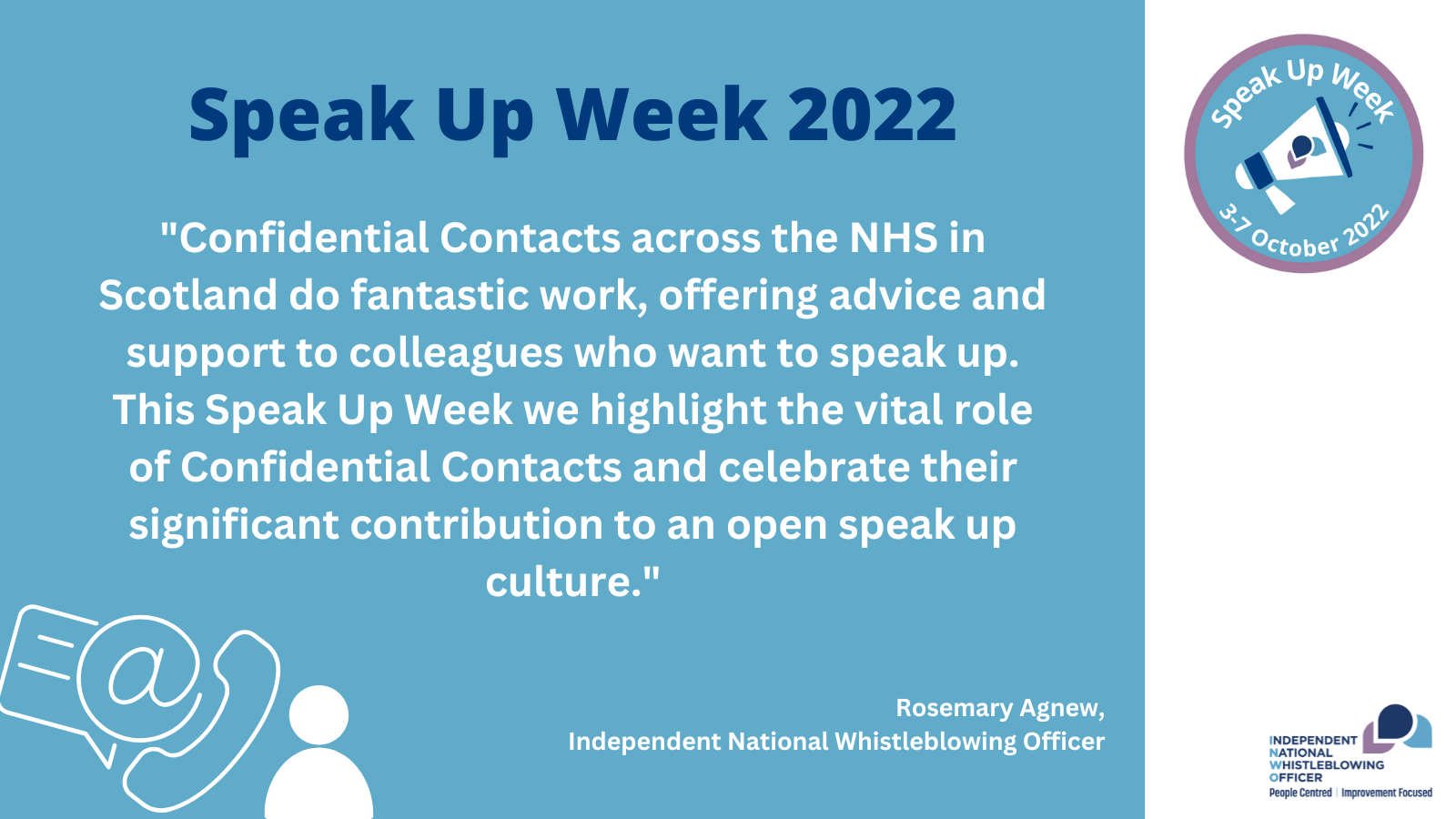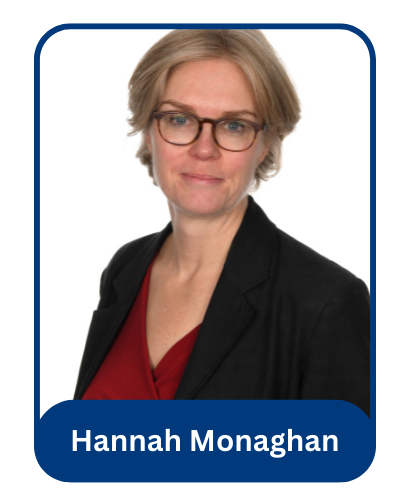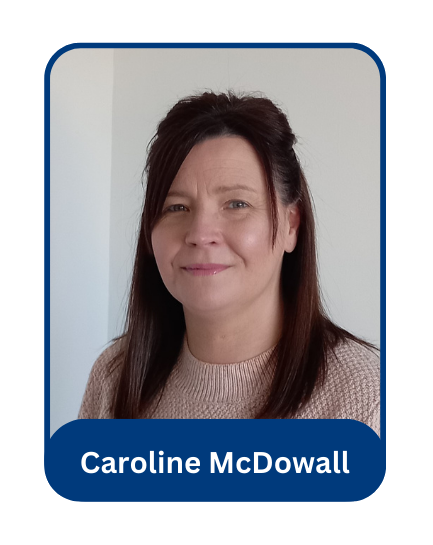
When people speak up, they need to be able to do so in a safe and supportive environment. Sometimes it’s as easy as raising a concern in a team meeting and matters getting resolved to everyone’s satisfaction. But if the concern involves a manager, or people don’t feel comfortable speaking to their manager, the Confidential Contact (sometimes called Whistleblowing or Speak Up Ambassador) can help.
Who are confidential contacts?
Confidential Contacts have a valuable role in supporting an open speak up culture in the NHS. They enable people to speak up who otherwise might not have their voice heard. They are a first point of contact for anyone delivering an NHS service. They can give advice and information on the whistleblowing process and help people to raise their concerns with the right manager.
Confidential Contacts have an ongoing role in supporting the whistleblower, so it is important that they remain independent of the board’s investigation and management of the concern. Confidential Contacts also have a role in promoting speaking up and helping to build trust in the process. With most Confidential Contacts doing this role in addition to their NHS job - and there being only a few Confidential Contacts in each board - this is a challenge.
Positive momentum
On 1 April 2021, the INWO launched the National Whistleblowing Standards (the Standards), which now means that all organisations providing an NHS service need to have procedures in place that enable their staff, students, volunteers and others delivering health services, to access the Standards and raise concerns. Caroline McDowall and Hannah Monaghan, co-chairs of the Scottish Speak Up Network, both held whistleblowing roles prior to the Standards coming into force and feel that they have made a real difference.

"This is an exciting time to be a Confidential Contact. Prior to the roll out of the new whistleblowing standards our roles were relatively isolated. We feel that there is a growing positive momentum across Scottish NHS boards to support the Speak Up! Listen Up! Follow Up! approach.”
Caroline told us that one of the most satisfying things about being a Confidential Contact is where a concern has not needed to go through a formal process after all, because the whistleblower has been supported to the extent that they feel comfortable to raise a business as usual concern. For Hannah, it’s seeing a clear and defined national direction for whistleblowing and drive to support an open and honest culture.
Scottish Speak Up Network
As the process in the National Whistleblowing Standards is still fairly new, Confidential Contacts are continuing to learn and develop in their roles. This is where the Scottish Speak Up Network has been invaluable. Hannah and Caroline told us,

“The Scottish Speak Up Network has given all Confidential Contacts the opportunity to get peer support and learn from each other. Because this is a confidential space, we can discuss openly how it feels to be a Confidential Contact and how we can deliver the role as best as possible.
We have also benefitted from support and development. Part of our network sessions are focussed on external speakers upskilling us all and increasing our awareness of work undertaken by other groups.”
The network is especially helpful for Confidential Contacts who do not have peer support within their own boards and who feel isolated. Confidential Contacts hear things that are challenging and the network is an ideal opportunity to help them process these experiences. It is also a safe space, with no blame, where people can ask questions and benefit from the experience of colleagues.
Benchmarking the role
The Scottish Speak Up Network is currently working towards standardising the role of the Confidential Contact. They have recognised that Confidential Contacts have different remits in each board, and even go beyond what the Standards intended. The network recently carried out its own benchmarking exercise of Confidential Contact roles, which they will be discussing with members in their next meeting. Confidential Contacts will be able to use the outcomes of this work to have conversations with their boards about their roles and how these should be developed. The INWO really welcomes this work and look forward to working with Confidential Contacts to shape and develop their role over the coming months.
Some of the early findings of the benchmarking exercise are that not all confidential contacts are aware of their role in supporting the whistleblower throughout the process. Some aren’t involved in promotion of speaking up or raising awareness either. There is also no formal training to be a Confidential Contact. Training opportunities have been different with some trained in soft skills and others having completed the National Freedom to Speak Up Guardian’s training in England, prior to the launch of the Standards.
The INWO and Scottish Speak Up Network are in regular contact and INWO has attended the network’s meetings to talk about topics like bullying and whistleblowing, and whistleblowing culture. The INWO is fully supportive of the network and will be providing any assistance it can to help.
Find out more
If you are a Confidential Contact and you would like to join the Scottish Speak Up Network, please contact Hannah and Caroline at [email protected].
Do you know who the confidential contacts are at your organisation? Look for details on your staff intranet page. If you’re still unsure, you can contact the INWO advice line on 0800 008 6112 or email [email protected].